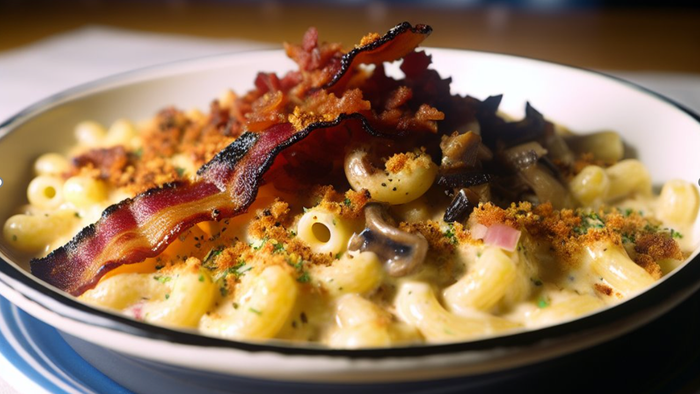Topic of Conversation: COVID-19Topic of Conversation: COVID-19
Topic of Conversation: COVID-19
March 17, 2020

It was business as usual last week at the Catersource Conference and Tradeshow, held at Mandalay Bay in Las Vegas, with the exception of the dark COVID-19 cloud that lingered in the background: in lieu of handshakes and hugs, elbow bumps were seen occurring across the conference; hand sanitizer stations were prodigious; and the coronavirus peppered more traditional discussions normally found at the show, such as trends, sales, and leadership.
As such, COVID-19 took front and center on Tuesday during the conference when two pop-up education sessions were quickly coordinated to discuss the current health climate and precautions being taken. Panelists from the two sessions included Ronnie Davis, Great Performances, New York City; Michael Stavros, M Culinary Concepts, Phoenix; Kristin Banta, Kristin Banta Events, Los Angeles; Emily Negley, Amazon, Seattle; Michael Massari, Caesar’s Entertainment, Las Vegas; and Vijay Goel, Bite Catering Couture, Los Angeles. Note: Goel is a former physician.
“It’s on the way,” said Michael Stavros of M Culinary Concepts. “Once they start banning events, that’s a whole different ballgame.”
And then Friday the 13th happened: a National State of Emergency was declared, the NBA, MLB, NCAA, and NHL cancelled their events, Washington, California, New York, Colorado, Illinois, and numerous other states, have issued bans on large events and gatherings. All of this occurred within just a couple days of the Catersource panel discussing how to address health, hygiene, and events.
With the uncertainty surrounding COVID-19, it is difficult to know what will happen to catering companies—most of them are already feeling the pressure. During last week’s panel discussion, a conference attendee stood up with tears in her eyes and shared that she had to lay off half of her staff because all of the events she had on the books for the Washington area had been cancelled.
Below is information from last week’s panel discussion. Please review and stay tuned for more information on COVID-19 as it becomes available.
What is COVID-19
COVID-19 is the disease caused by a virus strain that began spreading in people in December 2019.
People who have confirmed COVID-19 infections have a range of symptoms, from people with little to no symptoms to people being severely sick and dying. Symptoms can include:
Fever
Cough
Shortness of breath
COVID-19 is most impacting the health and wellbeing of elderly adults.
“There is a real threat to a small number of people,” Goel said. “The panic doesn’t make sense given the data.”
The Centers for Disease Control and Prevention (CDC) believes that symptoms of COVID-19 may appear in as few as two days or as long as 14 days after contact with someone who has the virus.
The main way COVID-19 is spread to others is when an infected person coughs or sneezes. This is similar to how influenza is spread. The virus is found in droplets from the throat and nose. When someone coughs or sneezes, other people near them can breathe in those droplets. The virus can also spread when someone touches an object with the virus on it. If that person touches their mouth, face, or eyes the virus can make them sick.
More can be found at: https://www.cdc.gov/coronavirus/2019-ncov/index.html
Talk with your clients
Health experts are concerned about COVID-19 because little is known about this new respiratory virus, and it can cause severe illness and pneumonia in some people. Given the lack of information and understanding, it is no surprise that the general population is reacting out of fear by canceling their events, because nothing frightens people more than the unknown.
“The people you are dealing with don’t have an MD,” Stavros said. “You need to educate them, guide them.”
What you can do
In addition to talking with your clients to discuss their fears, it’s also important to educate yourself on what you can do address COVID-19.
“We need to understand our limitations and where those impacts are,” Banta said. “There’s just mass confusion right now.”
Major considerations:
What happens if your events are cancelled?
What kind of reimbursements can you provide?
What ways can you mitigate damages to your business, your staff, and your clients?
What ways can you ensure the health and safety of your clients?
What types of cash flow alternatives are available?
Can you talk with your attorney about your options regarding signed contracts?
“You want to preserve the relationship,” Stavros said, “but you also need to know what you can stomach.”
Last week’s panel shared a few ideas for how to approach COVID-19 in the immediate:
Use gloved waiters
Extra handwashing and sanitizing stations
Toothpicks instead of tongs
Reusable glasses
Space the timing of hors d’oeuvres being circulated
Set tables six feet apart in order to practice “social distancing.”
Space plated hors d’oeuvres further apart from each other on the tray
For clients who wish to cancel, can you discuss other options with them so that you don’t lose out entirely on the business? Would they be interested in catering in lunches or breakfasts for their staff? Maybe look at expanding into a food delivery business?
Is a line of credit an option?
Can you work with your clients to reschedule their event?
There may also be some financial relief in the long term now The U.S. Small Business Administration is offering states and territories low interest federal disaster loans of up to $2 million to small businesses suffering substantial economic injury as a result of the virus.
Catersource will continue to monitor COVID-19 and bring you the latest information.
#EventStrong



.png?width=700&auto=webp&quality=80&disable=upscale)



